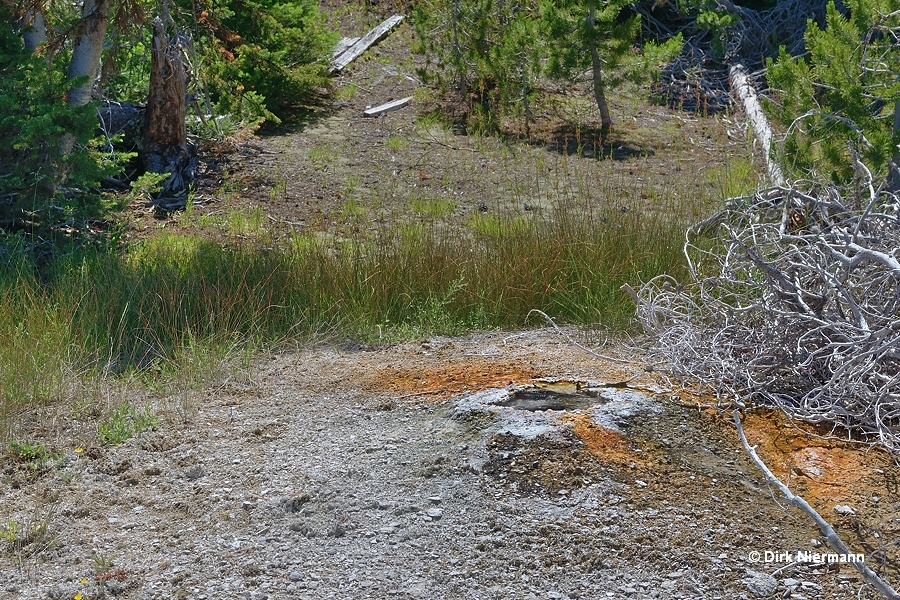West Thumb Geyser Basin, Lower Group - page 2
The Thumb Paintpots are located near the southern edge of Lower Group. Compared to Fountain Paint Pot and Artists' Paintpots they are more vivid in terms of color, but less active.
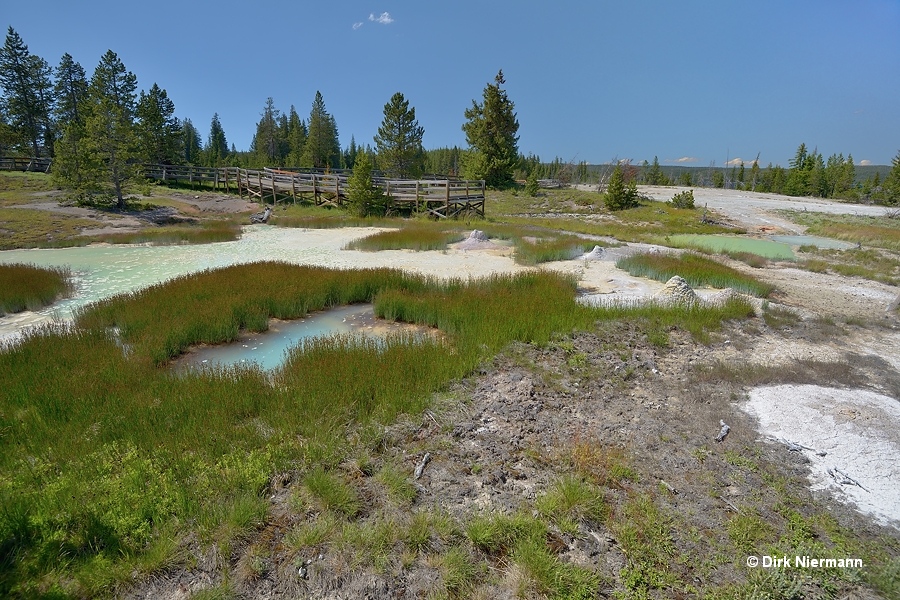
Pastel colored mud cones are the characteristic features of Thumb Paintpots. If more sulfur would be present, the colors would turn into the common dark gray we know from the majority of all mud pots worldwide.
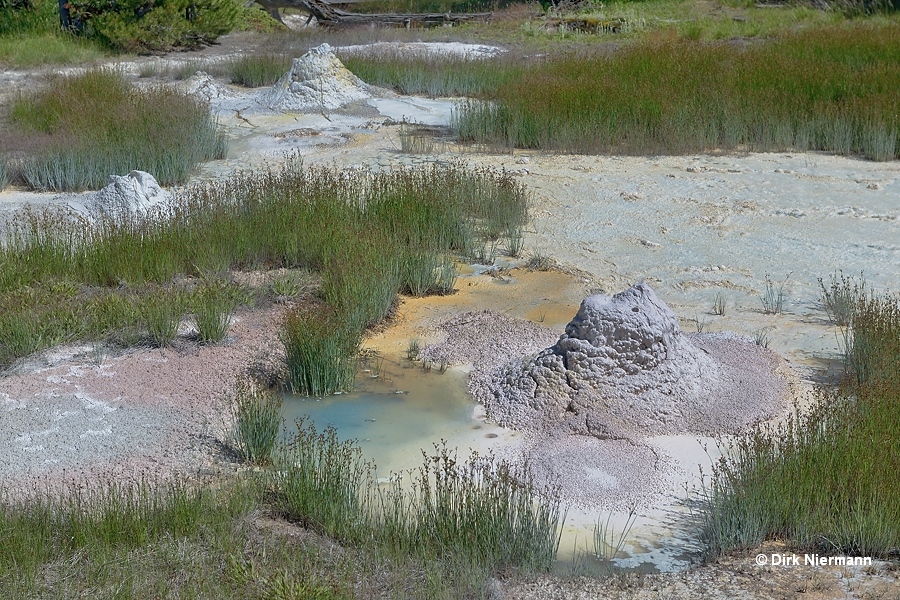
There are also some hot pools within the paint pot area. The largest one is WTLGNN091 in center.
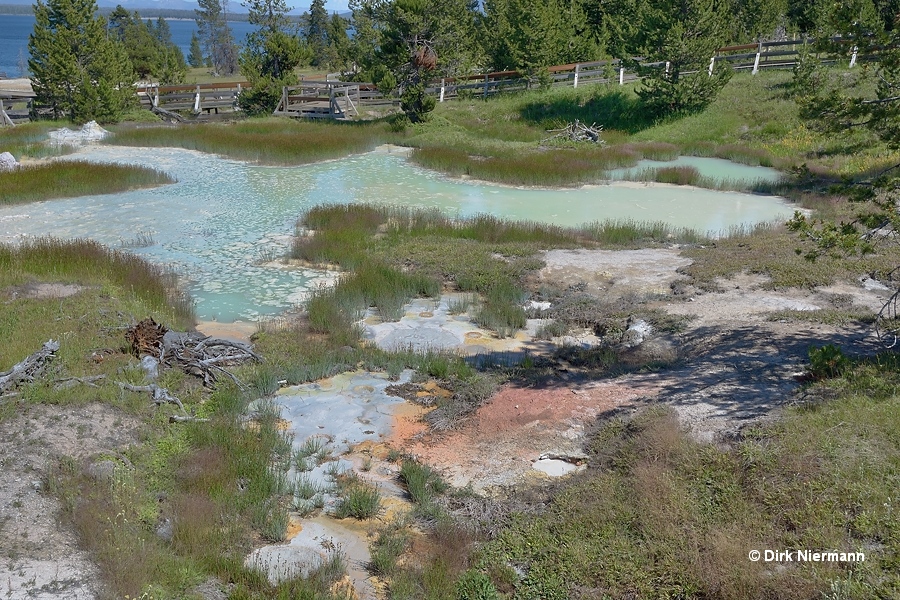
In the north three further pools are to be found.
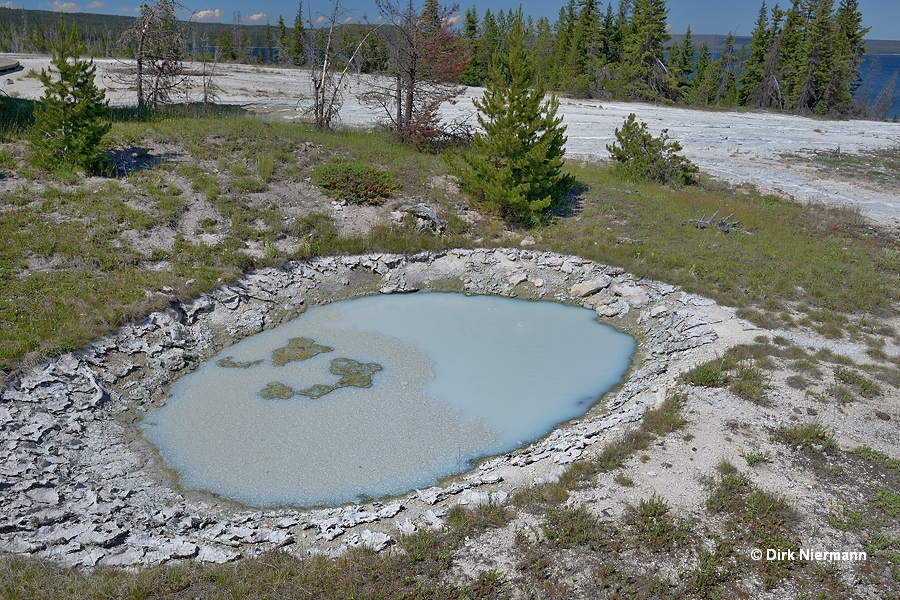
The pools WTLGNN082 and WTLGNN081 show an exceptional composition of pastel blue and green.
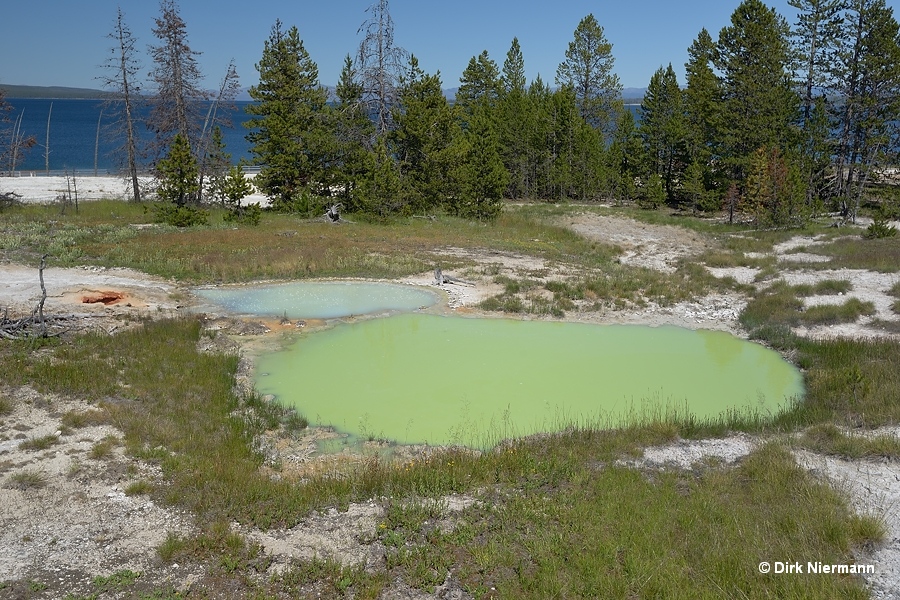
A splashing mud pot appeared in the south next to the old boardwalk.
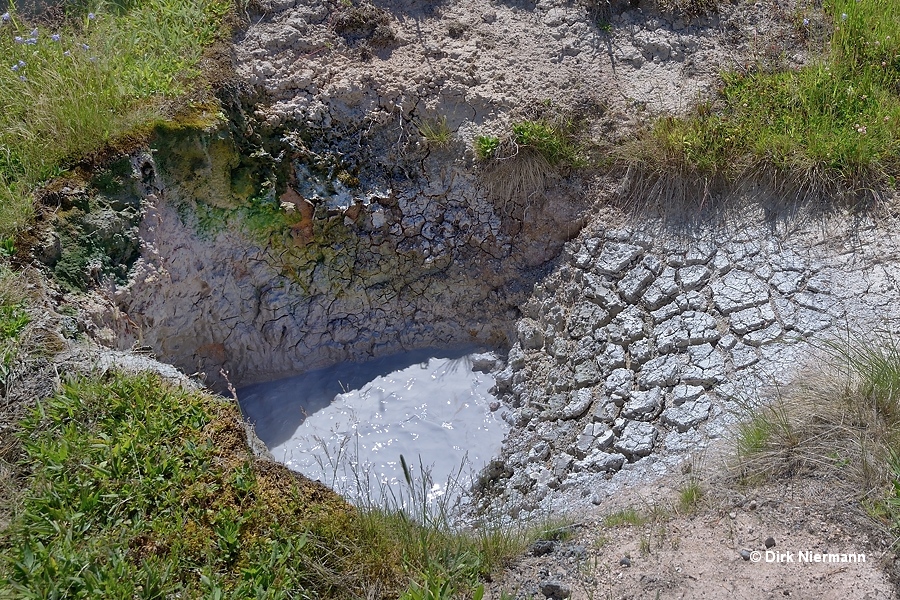
At short distance southwest of Thumb Paintpots two stunning hot pools catch the eye: Seismograph Pool and Bluebell Pool. After the 1959 Hebgen Lake earthquake the northern one of the formerly simply called Blue Pools was rumored to be sensitive to earthquakes and accordingly renamed Seismograph Pool. But such a sensitivity, of whatever kind, has not yet been proven or even observed.
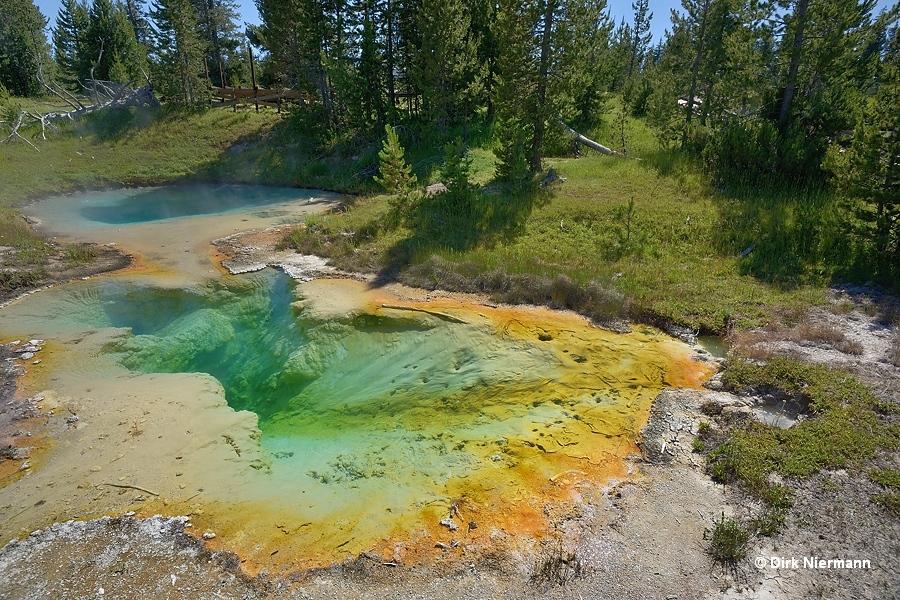
During Bluebells prime, it is a sort of twin to the former Morning Glory Pool because of its blue water inside a well-formed bowl shaped like an inverse bell.
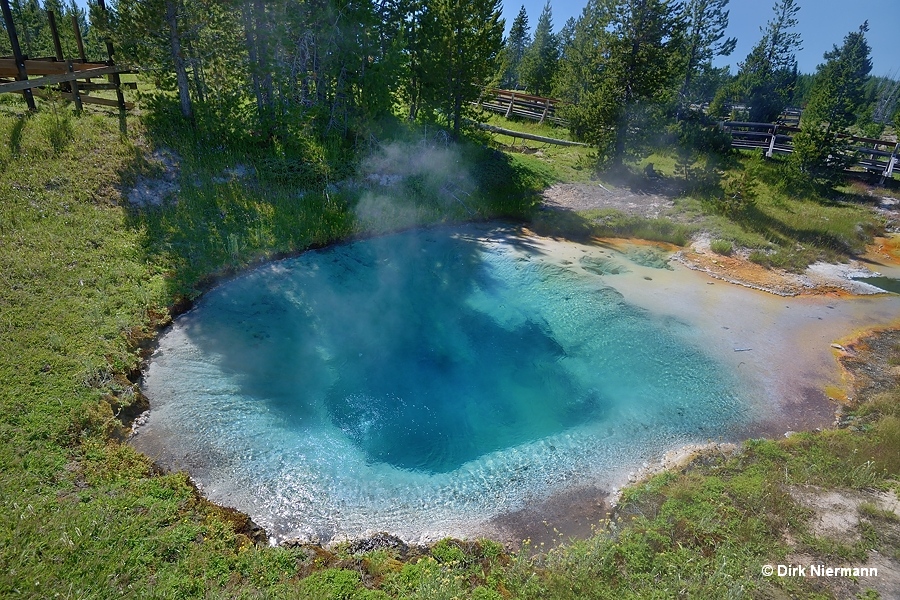
In 2014 the boardwalk which used to cross the southwestern periphery of Thumb Paintpots and to give close access to Seismograph and Bluebell Pools has been shifted to an uphill position, and this has led to a considerable change of visitor's perspectives. Now the visibility of Seismograph Pool is poor and, on top of that, Bluebell Pool has cooled down, ceased the overflow, and lost much of its former beauty. It appears that it has followed the example of Morning Glory Pool in this respect, too.
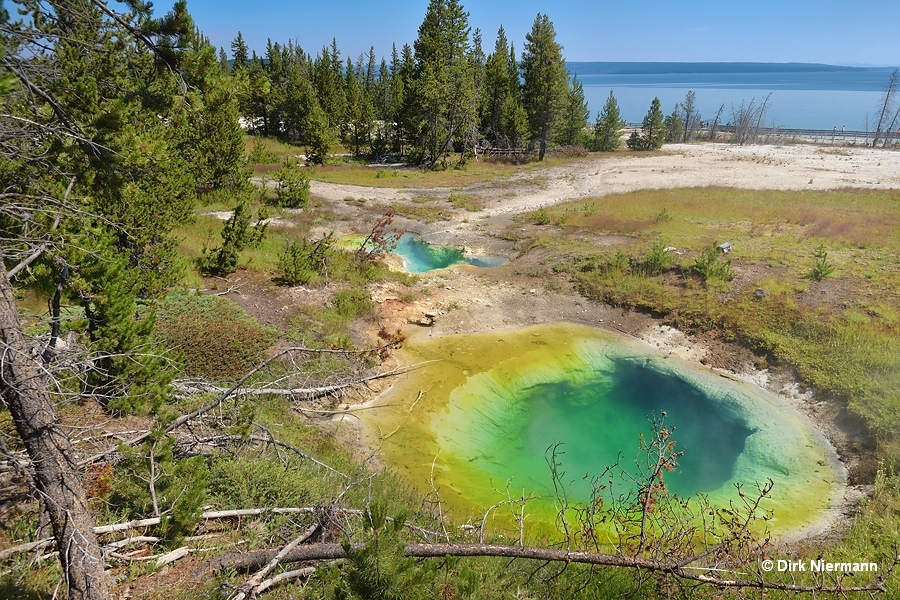
Downslope of Bluebell Pool the trail descends to the lake shore. On the left Lakeside Spring shows up.
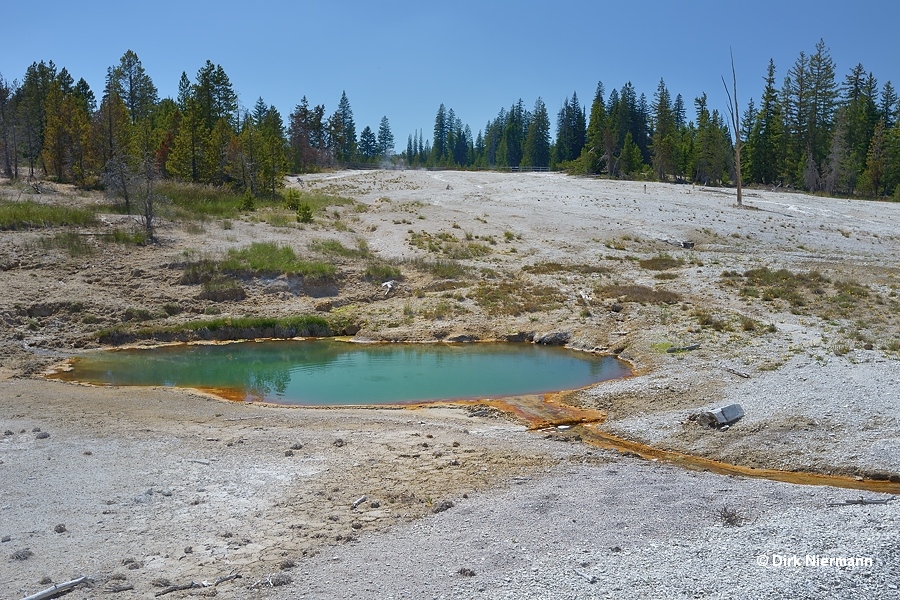
On the right side of the boardwalk the nearly always submerged Winter Spring is easy to overlook except for the top of its sinter ridge sticking out of the water. The spring only gets exposed if the lake is at low water level. Geyser expert Rocco Paperiello assumed that it was Winter Spring which claimed the life of a 27-year-old man from Saratoga, Wyoming, in August 1926. At that time a pier for ship traffic on Yellowstone Lake was located next to the spring. The man slipped, fell into the spring, climbed out and fell back again. Severe external and internal burns let him die on the same day.
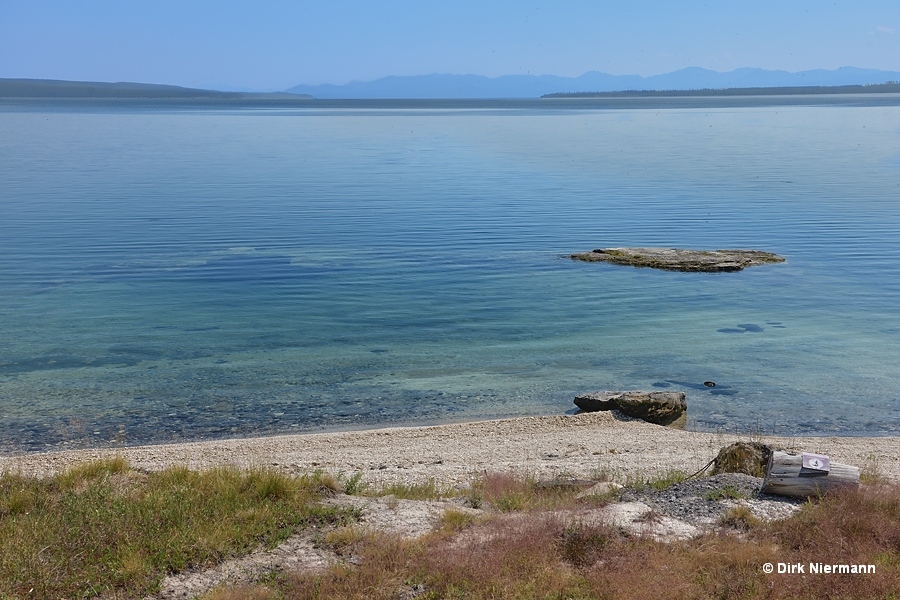
Even beyond Winter Spring and likewise mostly submerged a further thermal feature occupies the shore. Beach Geyser is still harder to detect when covered by water. Eruptions up to 2 m (6 ft) height can only occur at extremely low water levels of the lake, but even then they are very rare.
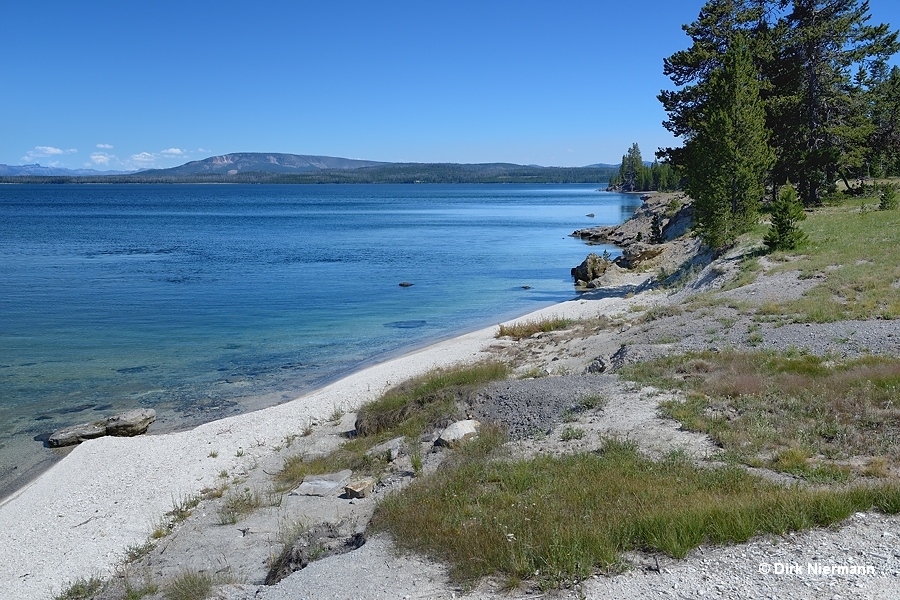
A few feet north of Lakeside Spring the slope is perforated by many tiny springs. Among them Venting Pool is the most prominent one. Every now and then some of the springs show weak spouting activity.
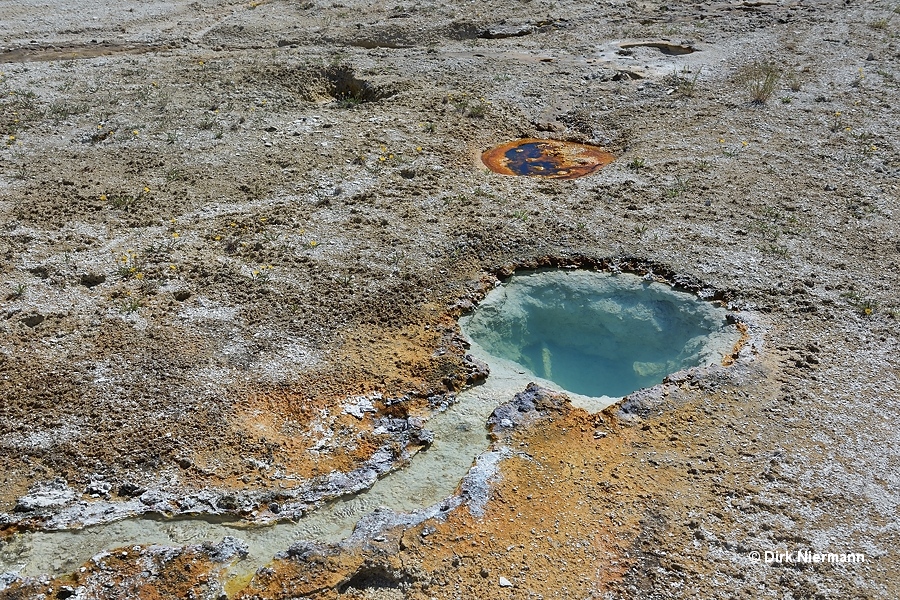
Then the boardwalk proceeds to Lakeshore Geyser. Usually this geyser is submerged. Unfortunately, it can not erupt if covered by water. But even at low water levels, when the cone is exposed, eruptions are very rare.
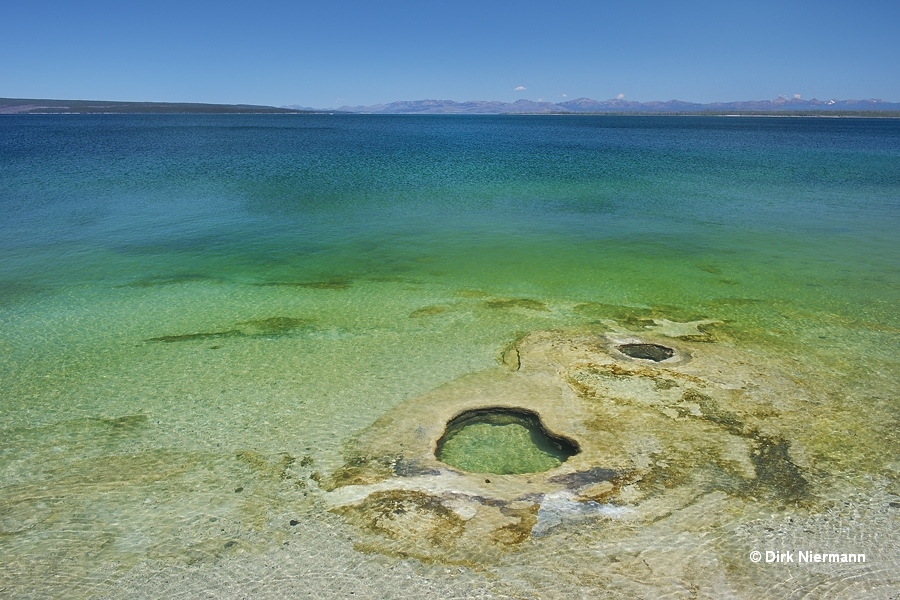
Next stop on the way north is Vandalized Pool. The name leads to the assumption that this pool must have been damaged by humans in the past. Vandalized Pool becomes flooded by the lake at very high water levels.
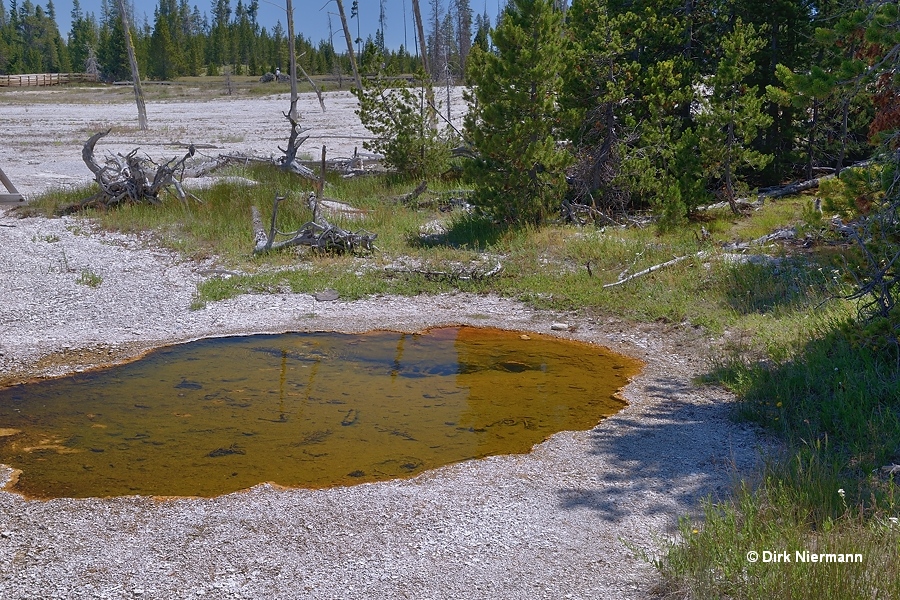
Diagonally across the boardwalk from Vandalized Pool Fishing Cone occupies the shore. Although it is a little bit more elevated than Lakeshore Geyser, it becomes quite often flooded by the lake. In the early 20th century Fishing Cone showed eruptions up to 12 m (40 feet) high, but nowadays activity is reduced to a weak splashing, if at all. Its clearly visible side vent was active the last time around 2009, as documented by geyser gazer Robin A. Reynolds-Haertle.
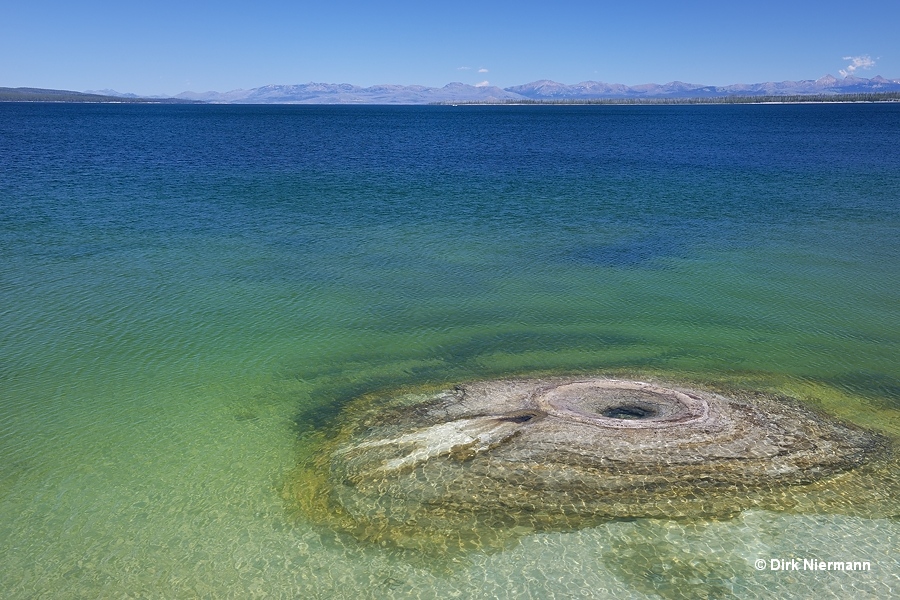
A third dominant geyser cone on the lake shore is Big Cone. At best Big Cone shows some splashing, but even that is rare.
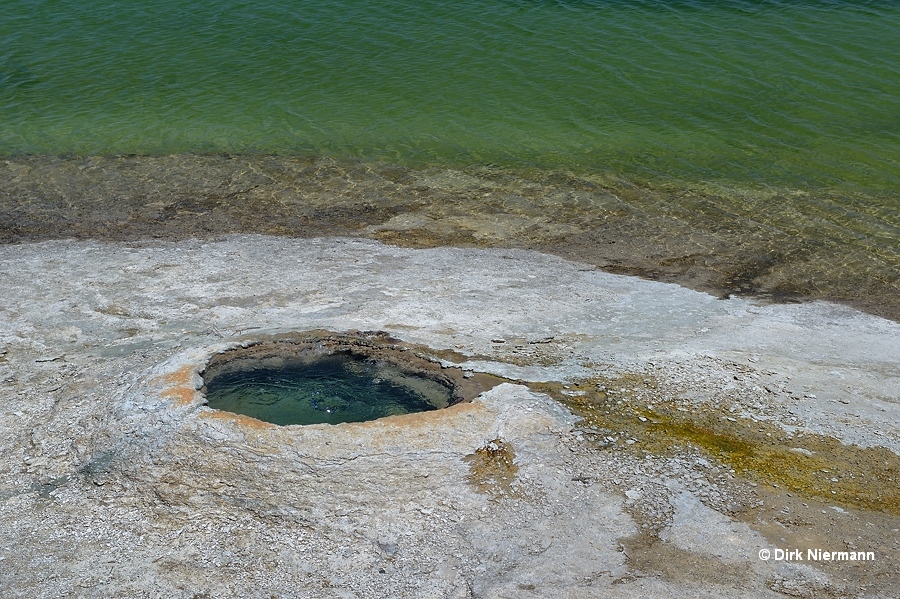
On the other side of the boardwalk Little Cone can be observed. This one is not known for spouting activity.
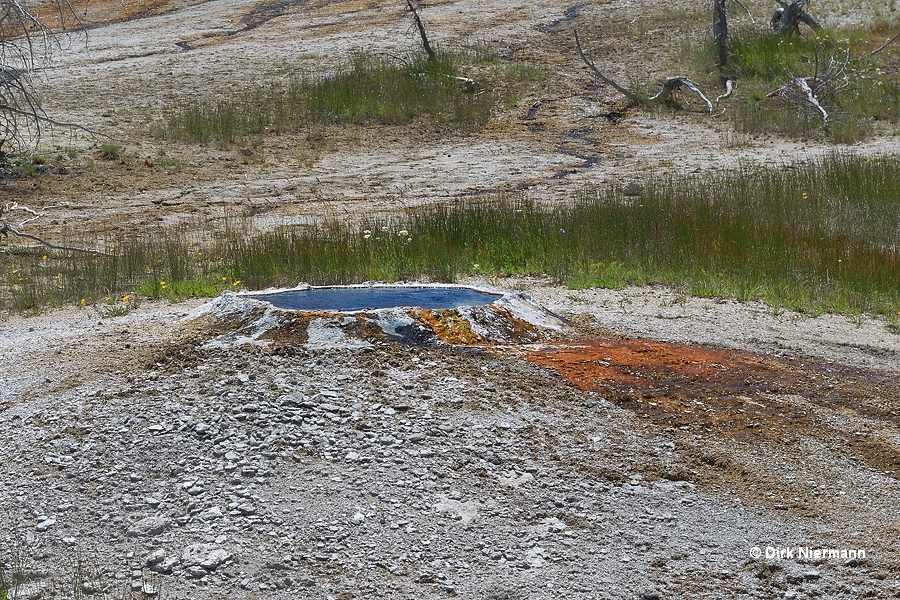
Last noteworthy feature along the lake shore is a small spring north of Little Cone which seems not to be listed in the RCN database.
